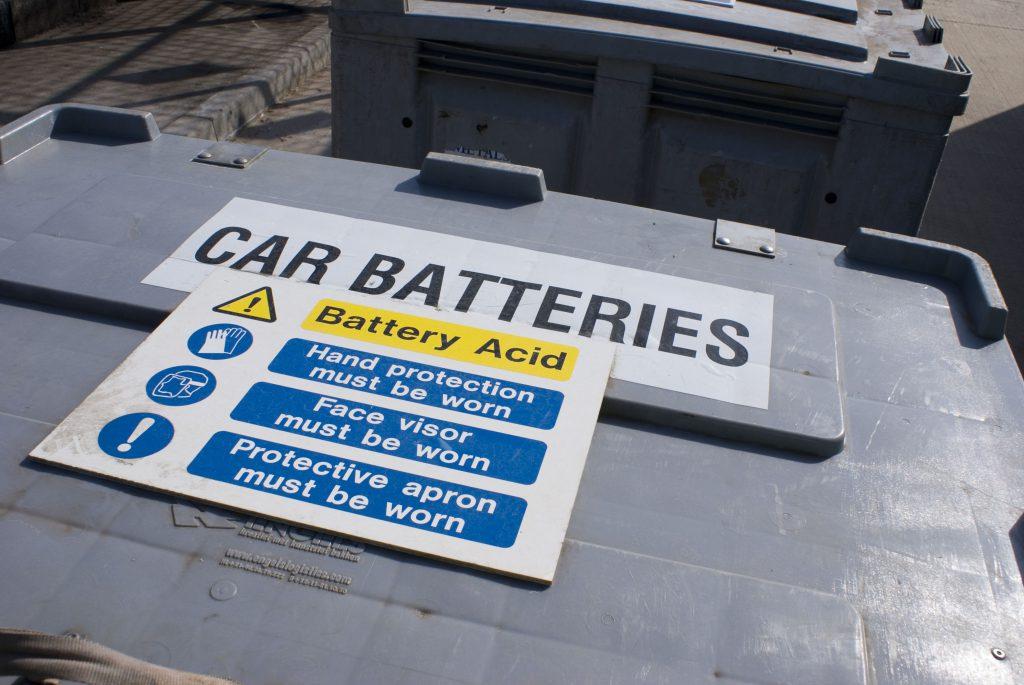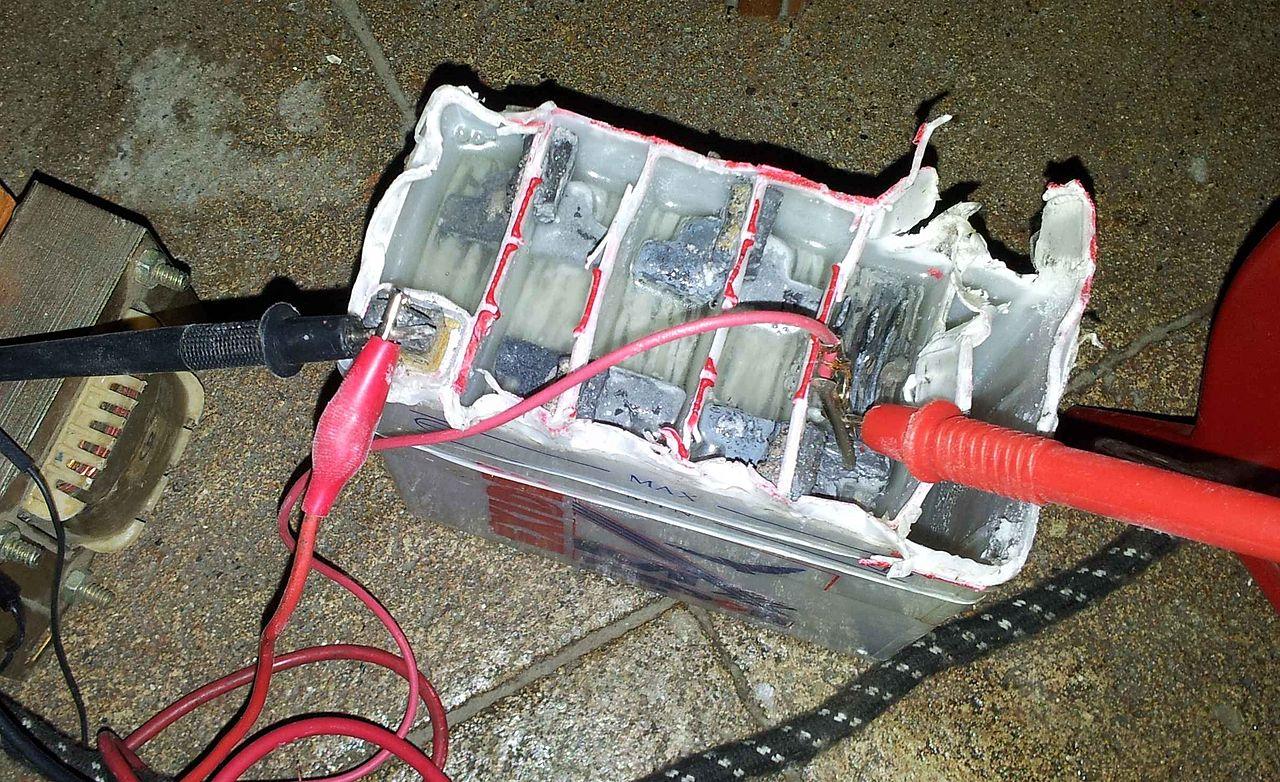A car battery is to a car what a brain is to the human body. It provides the vehicle with the necessary juice to keep it running for the longer duration of time. Apart from providing the car with power for smooth operation, the car battery also offers support to the headlights and some of the other in-built features of the car. First, we need to understand what kind of acid is in a battery of the car.
In this blog, we will share with you about the chemical composition of a car battery, and what chemicals are used by different car batteries.
You can also browse online to get the best car maintenance tips about keeping the car battery operational.
Contents
What Kind Of Acid Is In A Battery? Read Below To Find Out
The making of a car battery requires certain parts made from metal and chemicals. These influence the cost of batteries.
1. What Does The Battery Casing Of A Car Battery Contain?
The basic idea behind sealing the car battery with battery sealing is to keep the battery body safe, which is the source for converting the chemical energy to electrical energy.
Now, to answer as to what kind of acid is in a battery, the battery casing is made in different layers using different raw materials and can contain a layer of Polyethylene Terephthalate, a polymer layer, or carbonized plastic layers.

SEE MORE:
- How long does it take to charge the car battery while driving?
- Is Car Battery AC or DC? Here’s the answer
2. What Chemicals Does the Car Battery Contain?
The car battery contains at least 30 to 50 percent of sulfuric acid in water with 29% of sulfuric acid. The density of the sulfuric acid is 1.25 kilograms per liter, and the pH level is about 0.8.
However, the car battery chemical is a volatile and dangerous chemical, and proper protection should always be used replacing the chemical.
>> Looking for a used car from Japan? Click here <<
3. What Is The Chemistry Of A Car Battery?
The battery needs to have a different chemical base that varies according to the battery type.
For example, a Nickel-Cadmium car battery would have Nickel and Cadmium for longer life, temperature range, and high discharge rate.
A Zinc-Carbon car battery contains manganese dioxide as a cathode, zinc as anode and zinc chloride or ammonium chloride as an electrolyte.
On the other hand, Lead-Acid batteries carry lead dioxide and metallic lead as an anode and sulfuric acid (electrolyte).
The Lithium-Ion battery uses various substances, but the best combination is that of carbon as an anode and lithium cobalt as a cathode.
Lastly, the Reusable Alkaline battery has an anode, which is a zinc powder, and a cathode made from manganese dioxide mixture. The battery got its name from potassium hydroxide electrolyte, a soluble substance.

Acid in Battery Properties Summary
- Battery acid is highly corrosive, reacting vigorously with skin and mucous membranes, releasing a lot of heat.
- It is a polar liquid.
- Battery acid has a high electrical conductivity.
- Pure battery acid is colorless, but the acid readily picks up impurities and becomes discolored.
- It is not flammable.
- Battery acid is odorless.
- Its density is nearly twice that of water, at 1.83 g/cm³.
FAQs
1. Are there other types of acids used in batteries?
There are other types of batteries that use different acids. For example, nickel-cadmium (NiCd) and nickel-metal hydride (NiMH) batteries use alkaline electrolytes, not sulfuric acid. Lithium-ion batteries also use non-acidic electrolytes.
2. Is the acid in batteries dangerous?
Sulfuric acid can be dangerous if mishandled. It is corrosive and can cause severe burns if it comes into contact with the skin or eyes. It is important to handle batteries with care and use proper safety precautions.
3. Can battery acid leak?
Yes, battery acid can leak if a battery is damaged or overcharged. It’s important to inspect batteries regularly for signs of leakage, such as a bulging case or visible corrosion.
4. How can I safely handle batteries containing acid?
To safely handle batteries, wear protective gear like gloves and safety glasses. Avoid contact with the acid, and if it spills, neutralize it with baking soda and carefully clean it up. Always follow manufacturer instructions for handling and disposal.
5. Can I dispose of batteries with acid in the regular trash?
It is not recommended to dispose of batteries with acid in the regular trash. Many areas have specific regulations for battery disposal due to environmental concerns.
It’s best to check with your local recycling or hazardous waste disposal center for proper disposal methods.
6. What are some common applications for batteries containing acid?
Batteries with sulfuric acid are commonly used in vehicles (car batteries), backup power systems (UPS batteries), and in various industrial applications. They provide a reliable source of electrical energy.
7. Are there alternatives to batteries with acid?
There are alternatives like lithium-ion batteries, alkaline batteries, and rechargeable nickel-based batteries (NiCd and NiMH) that do not use sulfuric acid. These batteries are often used in portable electronics.
8. Can I mix different types of batteries with different acids?
It is not advisable to mix batteries with different chemistries, including different types of acids, as it can lead to unpredictable reactions and potentially be hazardous. Always use batteries of the same type and chemistry in a device.
9. Do all batteries containing acid emit harmful gasses?
A: Lead-acid batteries can emit hydrogen gas during charging, which is flammable and potentially hazardous if not ventilated properly. It’s important to charge lead-acid batteries in well-ventilated areas.
Check out this video from The Engineering Mindset to learn from the basics where we use and battery and how batteries work!
Summing Up
Thus, it depends on the type of car battery as far as understanding what kind of acid is in a battery goes.
Always prioritize safety when dealing with batteries containing acid, and be aware of the specific requirements and recommendations for the type of battery you are using or handling.




The car battery is important to a car as brain is to a human being. It provides the car with the necessary juice to keep it running for a long period of time. The basic idea of sealing the car battery with battery sealing is to keep the battery body safe. The battery case is made in different layers containing different raw materials and can contain a layer of Polyethylene Terephthalate . A car battery contains 30-50% of sulfuric acid in water. The chemical used in car battery is volatile & dangerous chemical and it should be replaced with proper protection.